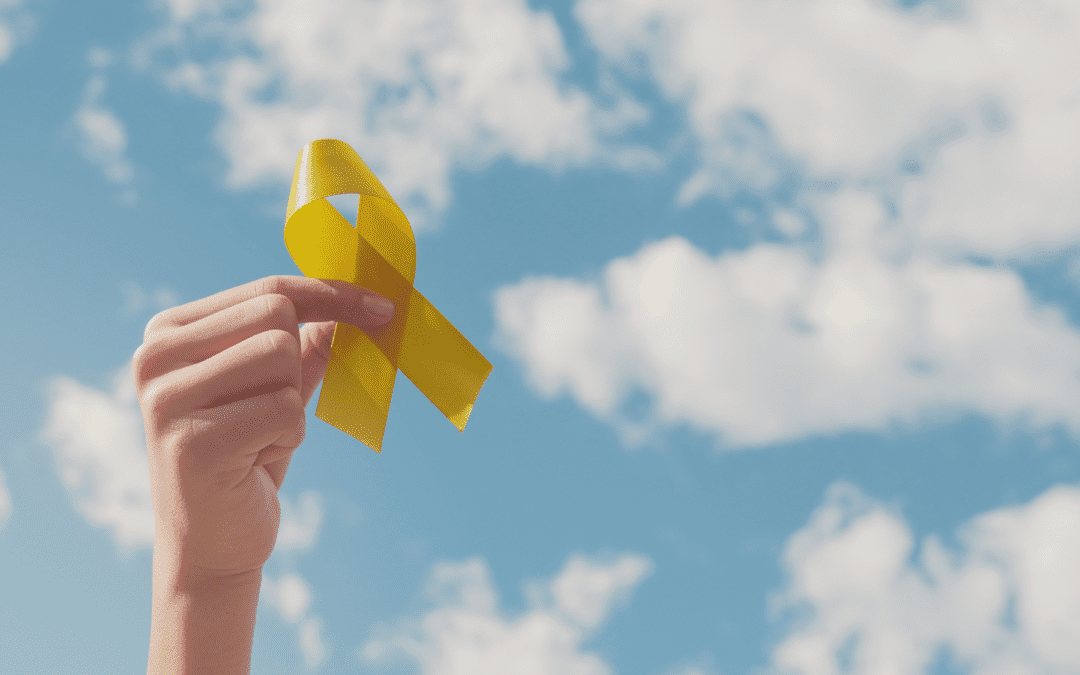September is Suicide Awareness Month “Pilar’s Corner” addresses a common question:
How can I tell if my family member/friend is severely depressed or suicidal and what can I do?
By recognizing signs and symptoms of depression and knowing factual information about suicide, we position ourselves to reach out and possibly save a life.
Through 25 years as a therapist and the past 11 years parenting a daughter with bipolar disorder, I have seen common themes among those who are battling depression and have contemplated or been affected by suicide.
Depression is a Major Risk Factor–Watch for Signs:
- Extreme lack of energy or fatigue
- Feelings of worthlessness or guilt
- Anger
- Irritability
- Trouble falling asleep, staying asleep or sleeping too much.
- Change in appetite, weight loss or gain
- Activities of daily living become very difficult- such as, a friend of mine says that his house is terribly messy when he is depressed. He can hardly get himself something to eat, let alone get his dish to the sink. He knows sunshine is good for him; the pool is just outside his door. However, on bad days he simply cannot get himself to the door.
- Self-Care drops off-Someone who is severely depressed stops grooming, and can barely get dressed
- Eyes look different, and a person can appear to be sick- e.g., when my daughter is depressed, her beautiful eyes don’t sparkle as usual, and she looks as if she has a cold or flu. Her doctor tells me that when she first comes out to greet her patients, she can often tell how well they are doing by how they look.
Communication is Key; It is critically important to reach out-
There is a myth that if you ask somebody if he/she has thoughts of suicide, you will give them the idea. The truth is that by showing concern you might be allowing him/her to open up.
Letting somebody know you care, are nonjudgmental, and available to listen can make all the difference.
Ask how your loved one is feeling. Push past the “I’m ok”. Point out what you are observing, i.e. withdrawal, quiet, sad or blank expression, sleeping a lot, inactivity, low energy or motivation, decreased self-care/grooming etc.
Through conversation, you might also detect and help break up patterns of negative thought such as: “I’m a burden”, “I’m no good”, “No one will ever love me”, or “It will never get better”.
Several years ago, my then 13 year old daughter had been battling bipolar depression for over two years. She sat at the kitchen counter after school one afternoon, her eyes welling up with tears. “It NEVER gets better”, she said. She had felt no relief for over 24 months, despite closely adhering to her treatment plan. My courageous and optimistic daughter was losing hope. After some conversation, she began to realize that she already had two years of struggle behind her. She told herself that every day she was one step closer to feeling better. Relief did eventually come, about six months later. She later described those excruciating years in this way: “Everyday was like climbing Mt. Everest, with no view of the summit”
“Take me seriously”– There is a notion that some people who mention suicide are just trying to get attention, or are manipulative. It is important to believe the person is in pain, and urgently needs help. A person’s exterior may not match his/her internal experience. Many have learned to put on a good face to hide internal misery.
Well-meaning folks may inadvertently say hurtful things such as:
“Suicide is selfish/weak/cowardly”, “just tough it out”, “look on the bright side”, “you have nothing to be depressed about, “Just go exercise”, or “go shopping” etc.
People often get to the point of suicide after bearing the heavy load of life or depression for a long time. Suicidal individuals are hurting inside and cannot take it any longer.
“This is the most incredibly hopeless feeling I have ever felt”– It is difficult to understand the depth of despair and suffering experienced by a person contemplating suicide, unless you have been in the same position. This is why notions exist that a suicidal person should be stronger or more brave, or that he/she has control over his/her thoughts and actions. The problem with this is that an individual considering or planning suicide is not in a healthy frame of mind. He/she is in deep misery and cannot see a way out. This is why it is so important to open up lines of communication, show you care and want to help. You can help break up negative thought patterns and get outside assistance.
“She seemed like she pulled through it, was more energetic and happy. I was relieved… we lost her a few days later.”- After an anguished period of time considering suicide, a person may develop a suicide plan. This plan includes the method and timing, etc. Elevated mood and energy, or a sense of peace may come from relief that after anguishing for some time, the decision has been made, and a plan is in place to end the suffering.
“The worst part of it was the note saying it was for the best, that there was no other way. I’m wondering what would ever make him think that this way”– A person who is seriously considering suicide is in an altered state, i.e. his/her thoughts are very negatively skewed. Suicide is seen as the only solution. Depressed individuals struggle to get through each day; their mental energy is seriously depleted
Once again, by recognizing signs and symptoms of depression and knowing factual information about suicide, we position ourselves to reach out and possibly save a life.
Suicide Hotlines & Resources
If you are in a crisis, please call 1-800-273-TALK (8255) or 1-800-SUICIDE (784-2433) in the US, or view our list of international hotlines. Calls are confidential and answered by a trained listener who is aware of the available resources for help in your area. They will listen to your needs and connect you to immediate assistance if necessary, or refer you to a place to go for help.
You can also text the crisis line, text “CONNECT” to 741741
You can find a list of International Suicide Hotlines here.
International Suicide Prevention Wiki– a worldwide directory of suicide prevention hotlines, online chat, text-lines, and resources. The ISP Wiki is open source to be used by any individual or organization. This directory was created for the PostSecret App and may be used freely in other apps to instantly connect people in need to crisis centers near them.
International Association for Suicide Prevention – online resource to find crises centers in Africa, Asia, Europe, North America, Oceania and South America.


